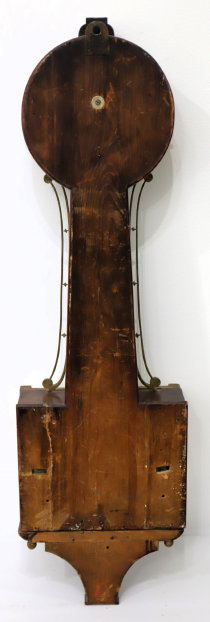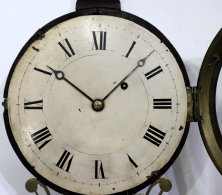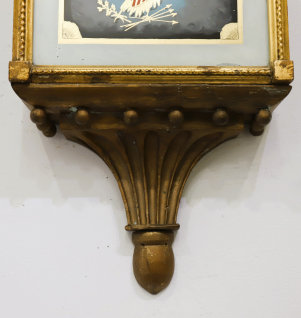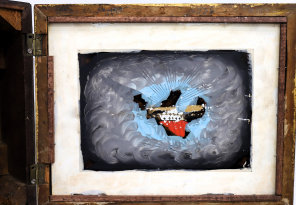
24. $1000
Early Boston presentation banjo, ca. 1825. Try as I might, I could not identify the maker of this early banjo. The case, excluding the modern ball finial, is 36.5 inches
long with mahogany sides, gilded rope front frames, a gold-painted presentation base, and a one-piece backboard. The gilding
is worn but original, with the base showing the greatest loss of color. Both glasses are original with the original tablets,
and only minor touch-ups. The brass bezel is the style used by the Willard school, with a very old glass (bubbles are present). The iron dial holds the original paint with light soiling and wear, and there is no sign of a signature. The dial exactly fits
the case, with two pins and two L-turns to hold it in place. The moon hands are early and fit the dial appropriately. What are the clues that would allow us to identify the maker? Bear in mind that I am no banjo expert, but I do have Paul J.
Foley’s book, Willard’s Patent Time Pieces. First, the movement. Most noticeable are the two holes cut out at the top
that allow you to view the escape pallets. I could not find another movement with these holes, so I think they were added later
and not original. It has a simple T-bridge pendulum hanger, a brass crutch, and an undistinctive keyhole pendulum. There
is a short straight-click pawl like that seen with many early Boston/Concord area time pieces. The movement mounts to the backboard
with a single center screw. The weight pulley may be a later replacement, the weight is lead but may also be a replacement. The pendulum bob is on a metal rod and the weight shield and pendulum tie down are not typical of this period; they may be later. There may be some important clues that I am missing; if you see one, please let me know. There were many second-generation banjo
makers in the Boston area in the 1830’s, most of whom made very similar clocks; those who made time pieces with single center-mount
movements include William Grant, Joseph Larkin, William Pratt, Abel Stowell, among others. This is a nice-looking example with
original glasses, dial, and good recessed rope gilding. It is running without problem. You could do worse. AAC sold a
similar example in 2022 for $1586. $1000–$1500.
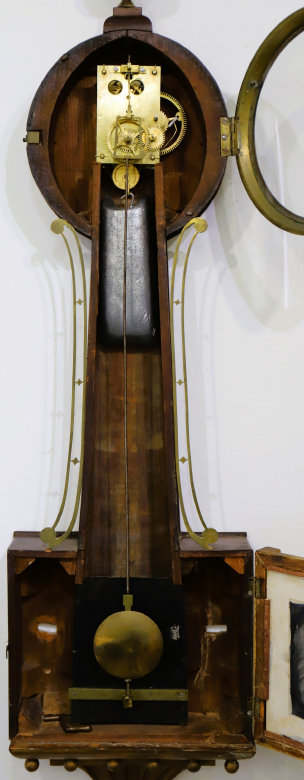


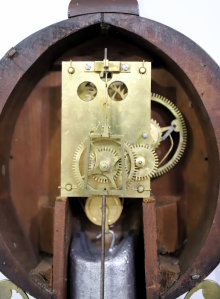
Antique American Clocks january 2025

